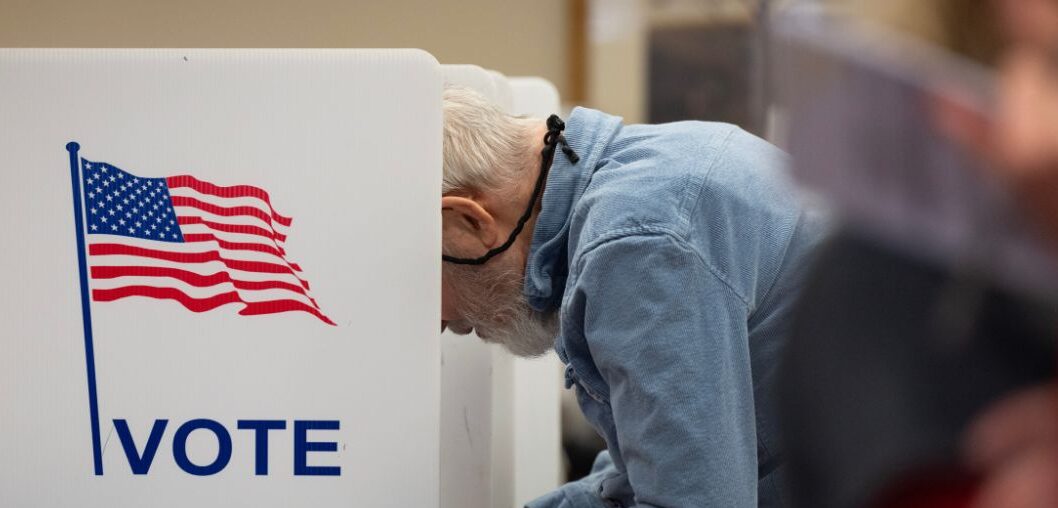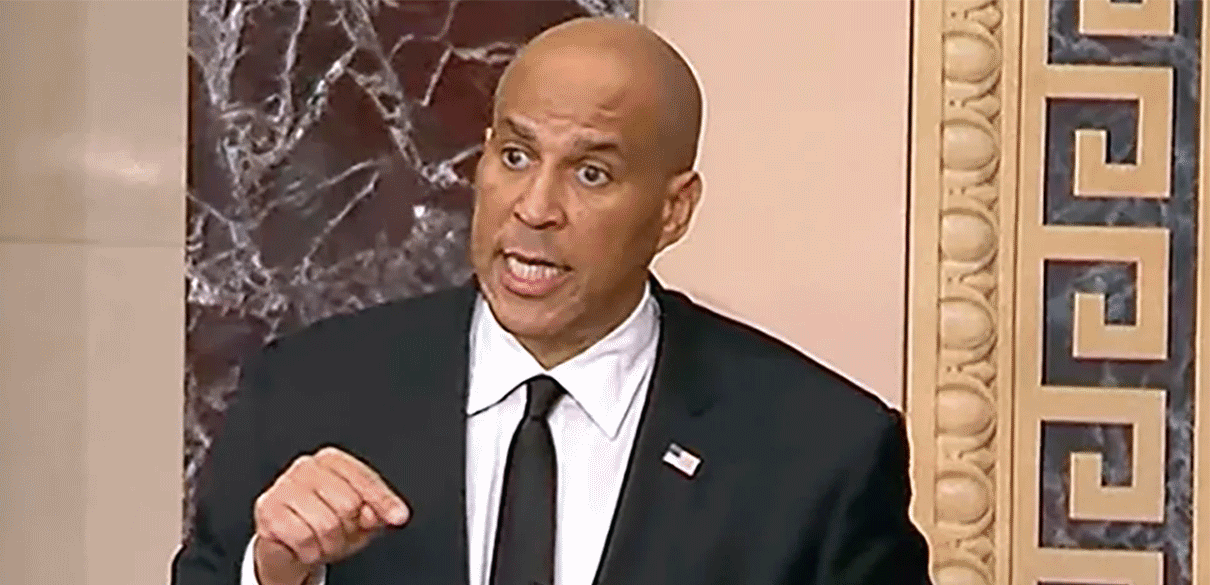In an age where the optics of politics often eclipse their substance, Senator Cory Booker’s 25-hour filibuster stands as a monument to what many perceive as the modern Democratic Party’s deeper ailment: the pursuit of theater over tangible governance.
Though it will undoubtedly be hailed in some circles as a display of passion and principle, a closer examination reveals a troubling absence of strategic purpose—and an even more alarming reflection of the party’s detachment from the concerns of everyday Americans.
Booker’s marathon speech on the Senate floor invoked the spirit of Mr. Smith Goes to Washington, the 1939 Frank Capra film in which an idealistic senator stands against corruption. It’s a poignant reference—but one that only underscores the emptiness of the moment.
Senator Cory Booker has broken the record for longest floor speech in U.S. Senate history, after speaking for over 24 hours.
Booker’s speech is protesting the actions of the current Trump administration. pic.twitter.com/rwDzMBsBNK
— Pop Base (@PopBase) April 1, 2025
Unlike Jimmy Stewart’s character, who filibustered to expose graft and defend lost boys’ camps, Booker’s soliloquy lacked a defined legislative cause. It felt less like an act of protest and more like an extended audition, not for legislation, but for political relevance.
There is, of course, precedent for long-winded senatorial grandstanding. Segregationist Strom Thurmond still holds the record for the longest filibuster in history—until Booker eclipsed him. But if Thurmond’s speech was infamous for its content, Booker’s may be remembered only for its absence of it.
Despite his impassioned delivery, the speech was curiously devoid of legislative specificity. His confessionals—”I confess I have been imperfect”—mirrored the language of religious liturgy more than political leadership.
Stephen Miller just ended Cory Booker’s career:
“Cory Booker filibustered for men in women’s sports, open borders, and taxing tip workers.”
Miller adds that Booker never filibustered for American victims of illegals.
Democrats lawmakers are soulless.pic.twitter.com/wEv18qlMPv
— Paul A. Szypula 🇺🇸 (@Bubblebathgirl) April 2, 2025
This is not a trivial distinction. That a sitting senator would conflate political opposition with moral redemption speaks volumes about how performative and insular today’s politics have become. Booker’s rhetoric suggested that the Democratic Party, through its own failings, had created the conditions for Donald Trump’s rise. That’s a moment of honesty. But what followed was not a path forward—it was pageantry.
Moreover, the use of the filibuster here is not without irony. Democrats, for the better part of the past few years, have framed the filibuster as a racist relic—one that obstructs progress and silences majority rule. Yet when the procedural tactic aligns with their goals, it is suddenly reborn as a tool of noble resistance. Former Democratic Senator Krysten Sinema’s sardonic comment—”Maybe it isn’t an old Jim Crow relic, after all”—highlights this glaring inconsistency.
Ultimately, the deeper concern isn’t just Booker’s speech—it’s the worldview it represents. A Democratic Party that once championed centrism and pragmatic reform has been drifting toward a strategy of apocalyptic framing and symbolic gestures. Rather than engaging constructively with voters who may not share their vision or working across the aisle to find common ground, leaders like Booker seem intent on waging an endless culture war against a caricature of their opposition.
In 25 hours, Cory Booker never mentioned; Laken Riley, that our borders are closed and Americans are safer, that we have a President who wants peace and not War in Ukraine, and he never said the domestic terrorism of firebombing Tesla dealerships is wrong.
He had 25 hours. 25!— Rob Schneider (@RobSchneider) April 2, 2025
If this continues, the party may find itself not only politically impotent but increasingly irrelevant to a population yearning for solutions, not soliloquies. The time for hollow heroics has passed. Today’s challenges demand more than borrowed symbolism and rhetorical acrobatics—they demand courage, clarity, and, above all, competence.



